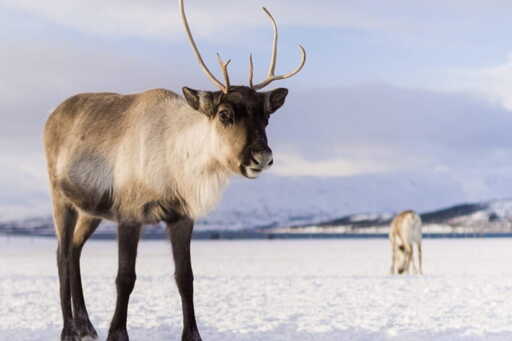In 2024, as unpredictable rains, snow and heat beat down on Finland’s Arctic, reindeer struggled to secure food sources, say Indigenous Sámi herders who shuffle their packs from one grazing ground to another. According to researchers, this is an example of the much larger problem the species faces. Due to climate change, a recent study published in Science Advances estimates the global reindeer (Rangifer tarandus) population could decline by more than 50% by 2100, with the steepest declines expected in North America at 84%. Best-case scenarios predict a 42% decline on the continent, while some models suggest increases in population on Russia’s Taymyr Peninsula. “The idea was to understand and figure out if we can simulate how reindeer species responded to past climate events, so we have a better idea of how they will do in the future,” says one of the study’s authors, Elisabetta Canteri, a postdoctoral researcher at the Globe Institute at the University of Copenhagen in Denmark. “And [we] looked into the traits and characteristics that make any species more resilient to climate change.” The researchers reconstructed 21,000 years of reindeer population dynamics, comparing them with current population declines and identifying ecological patterns and species traits that helped them be resilient to past episodes of rapid warming. These traits include their ability to live in a wide range of environments, to disperse far to new areas (high mobility) and the capacity to reach high population numbers when conditions are favorable, while also surviving in small population sizes.…This article was originally published on Mongabay
From Conservation news via this RSS feed


